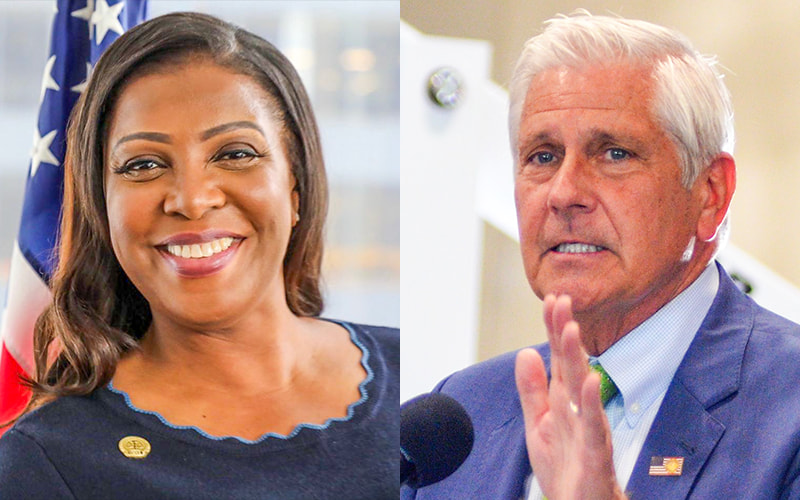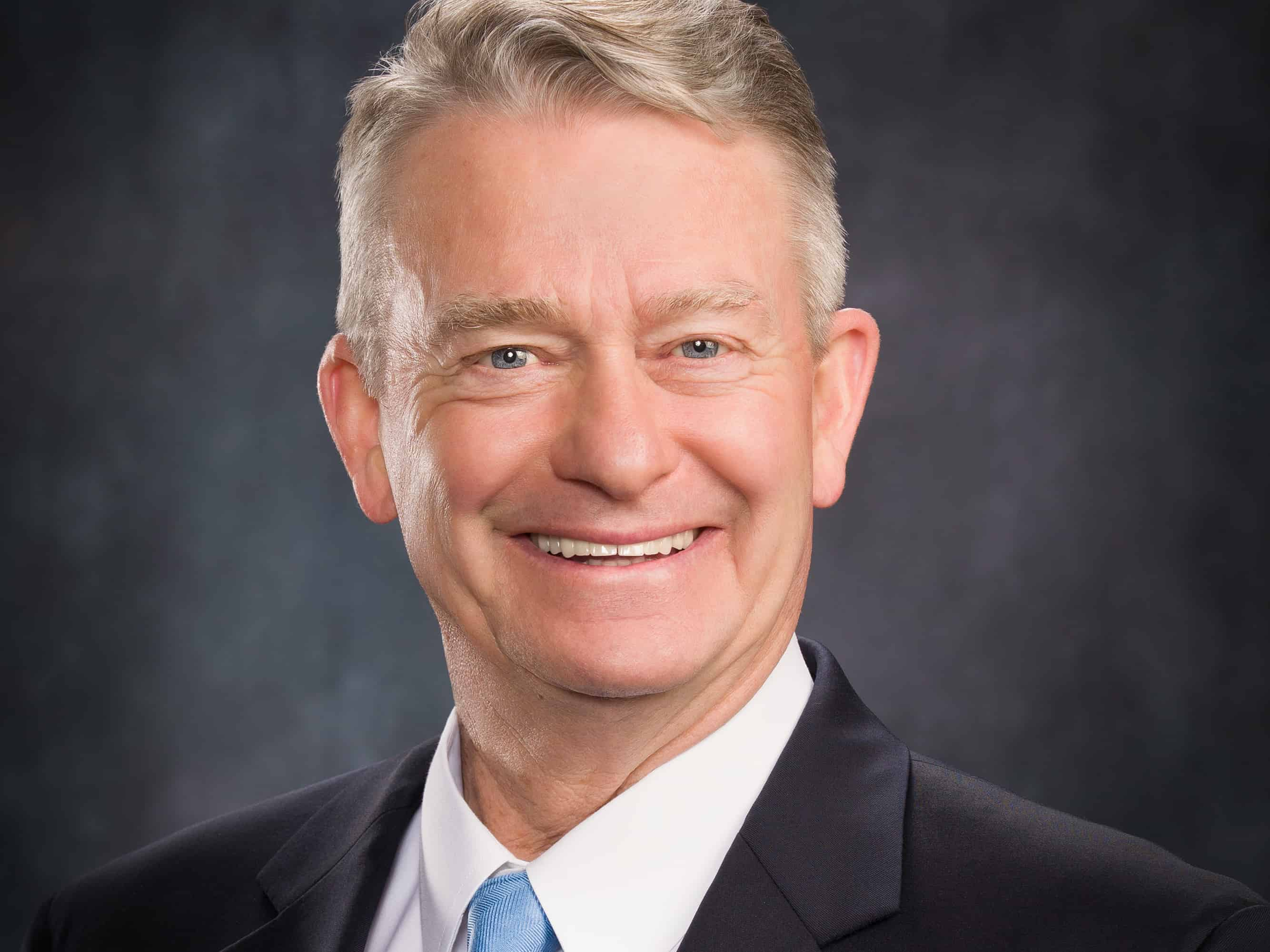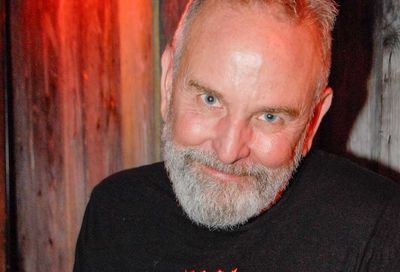Transgender service members react to repeal of Trump military ban
Recruits and enlisted members look forward to serving without fear of being discharged for who they are

“I always had an inner desire to join the military,” says Sterling James Crutcher, a senior airman in the U.S. Air Force. “For me, it came from personal reasons: my grandfather was in the Army years ago. He passed away shortly before I joined. And he played a big role in my life.
“He was the kindest, sweetest man. He would give the shirt off his back to anyone he saw walking down the street. But he also continued his service within the [Veterans of Foreign Wars]. He continued to be a chaplain for funerals and the VFW all the way up until the day that he passed. His encouragement to do that, the joy he talked about from being able to be of service, really lit a fire in me at a younger age.”
Crutcher enlisted six years ago. During his service, the 32-year-old saw the implementation of the Obama administration’s policy allowing transgender individuals to serve openly and receive medical care without restrictions, just like their fellow cisgender service members.
Later, after President Donald Trump attempted to institute a prohibition on transgender troops, Crutcher learned he would be exempt, and would be allowed to continue his gender transition, having been “grandfathered” due to his compliance with the Obama-era policy.
“For me, being able to transition, I fully believe, aided in my confidence, aided in my leadership, aided in my resiliency within the military, because it gave me an opportunity to grow as the person that I am,” he says. “It allowed me to learn how to be the leader as who I was versus who I had to pretend to be every day.”
But Crutcher feels the Trump policy also sent a message to transgender people — that they were undeserving or “less than” their fellow service members.
“Because I was exempt, I was still allowed to continue my transition in the military,” he notes. “But it put a lot of strain on those who were not exempt because they were not able to take that same path…. When you hold onto that, it makes things harder for you to focus on your job, focus on the mission.”
That’s why Crutcher welcomes President Joe Biden’s decision this week to sign an executive order repealing Trump’s prohibitions that kept most transgender people from serving openly, and required them to closet themselves and remain in their assigned sex at birth if they did not want to be discharged.
Once fully implemented in the coming months, Biden’s executive order will eliminate the three-tiered system for dealing with transgender service members.
Out transgender recruits, heretofore barred from serving, would be admitted. Non-exempt service members will no longer be threatened with discharge, and will be able to receive medically necessary care, ranging from hormones to gender confirmation surgery, based on what is in the best interest of their health and well-being.
The repeal also allows for military records to be corrected if qualified service members were discharged or prohibited from reenlisting due to their gender identity.

“By lifting the ban, you’re allowing trans service members to grow, to become the best leaders that they can be. And they can show that every day in their work because their focus is not going to be on ‘Oh, I wonder if this person knows,’ or ‘I have to go use this restroom and it is stressing me out because this is not who I am,'” says Crutcher. “It gives us the courage to step out, the courage to feel like we’re on a level playing field as the rest of the military.”
Related: Acclaim for Biden’s repeal of the transgender military ban
Kaz Lewis, 23, a second lieutenant in the U.S. Army, has been one of those transgender people serving who were not exempted from the Trump policy, which required any non-grandfathered service member to effectively deny their identity and adhere to grooming standards based on their assigned sex at birth.
“I was at school during the initial repeal of the [‘open service’] policy and the implementation of the ban. I had already started to come out to friends,” says Lewis. “And then when the ban was initiated, I couldn’t actually go anywhere with that. So I was in a state of finding out my identity, feeling more comfortable as myself, and then I have to worry and be concerned with how it’ll affect my military career, and what I can say or not say, according to the policies that were in place at any given time.”

Lewis says that most people in his company knew of his transgender identity and were fairly accepting, although many were not aware of the consequences of the ban. He had to educate some of his fellow soldiers, while also being careful to toe the line and not “officially” come out as transgender, lest he be discharged.
He says that with the Trump ban lifted, he can now seek out a diagnosis of gender dysphoria from his medical provider, and access any necessary prescriptions or medical care he may need. Lewis will also be able to change the gender marker on his official military records.
“From a young age, I wanted to be in the military in some form or fashion,” Lewis says. “My dad is in the Army. And I like the structure of it, and the higher purpose. When I graduated from high school, I applied to West Point, and they took me the next year. While I was there, I became more confident as a person and as a leader, and my ability to succeed in my future endeavors, in the Army and beyond.
“For me, lifting the ban means that, as I progress through my career, I can get different jobs and take on different roles, and can focus on the mission and what I’m supposed to do, just like everyone else. I won’t have any reservations in the back of my mind about how being trans might negatively affect my career,” he adds.

Alleria Stanley, a staff sergeant in the U.S. Army for the past 18 years, was, like Crutcher, exempt from the ban, having come out while the Obama-era “open service” policy was in place. But she saw the effect it had on her fellow transgender service members who were not exempt.
“It did not affect me directly, but it certainly fomented and allowed the culture of anti-transgender personnel, where it was almost like the message was, ‘Don’t worry, we’re getting rid of them, we won’t let anymore in, and we’re weeding out the other ones as soon as we can,’ that states that we are unfit for service,” she says. “That is that is a very hard statement to serve against when it comes from the commander-in-chief.”
Stanley expressed sympathy for those who weren’t exempt from the Trump policy, while also recalling what it was like being closeted prior to the introduction of the open service policy under President Obama.
“It is very much a mental difficulty, because in the military, you would portray one gender and then in your off time, in your home life, you would portray your authentic self, so you would be flip flopping back-and-forth,” she says. “You lived in fear that someone would find out; you were worried that you could lose your job at any time… And if someone found out, that could mean the end of everything for you, your career, your ability to serve your nation, it would all be gone.
“For those I knew who wanted to serve, they were forced between the choice of: ‘Do you want to serve and deny who you are, in the hope that one day, it will change? Or do you wait to serve?'”

Stanley agrees with the findings of a recent analysis by the Palm Center, which advocates for inclusive military service, that Biden’s executive order could be easily implemented in a fairly expeditious manner.
“The policy has already been done, the research has already been done. The implementation of regulations has already been done before. We just need to re-implement them,” she says. “Four of the service chiefs said n testimony before Congress that they saw no difficulties with transgender service. So now, with the support of the transgender community, the chiefs of services, the Secretary of Defense and the commander-in-chief, it shouldn’t be a problem at all.”
But she also noted that Congress has a role to play in the near future, and urged the Democratic-run House and Senate to make the Biden “open service” policy permanent.
“How do we make this permanent, so we stop flip-flopping every time we change administrations and worrying what our status is? We need Congress to make it legislation,” she says. “And while the Supreme Court has ruled that there can be no trans gender discrimination in employment, the Defense Department is different, and so we need specific legislation welcoming and enshrining in law our service.”
She also wishes to push back against common misperceptions surrounding transgender military service.
“It is often said by people that have never known anyone transgender in the military, which we always respond, ‘Yes, you did, you just didn’t know [about their identity] because they were serving in secrecy or in hiding because of what was effectively a ‘Don’t Ask, Don’t Tell’ policy for transgender members,” she says. “We’ve always been there.”
Stanley says that complaints from opponents of open service over medical costs related to paying for transition-related treatments or surgeries are overblown.
She notes that the Department of Defense’s own estimates find that $2 million were spent on transgender health care, constituting 0.1% of the military’s health care budget. By contrast, the military spends $84 million each year on erectile disfunction, according to an analysis by The Military Times.
Perhaps one of those who will be the most affected by the repeal of the ban is Nic Talbott, a 26-year-old prospective recruit who was forced to leave the Army ROTC program he was enrolled in because of his gender identity. Under the Trump ban, any recruit who was openly transgender was barred from enlisting in the Armed Forces altogether.

Talbott, who is currently working on his family’s farm while attending graduate school at Kent State University, has long wished to commission as an officer, either in the Army or the Air Force, but feels his career path was “stalled” by the ban.
“It’s a huge weight off my shoulders,” he says. “This ban is something I’ve been fighting for years. So for me, this a huge leap forward. Hopefully, within the next few weeks or months, I will be able to move forward in my career and my adult life.”
Within 24 hours following the ban’s repeal, Talbott tweeted that he had been contacted by his old Army ROTC recruiter to talk about re-joining the program.
“I’m well into my transition at this point,” he says. “When I first started to try to enlist, I had met all of the qualifications that were in place at the time, with respect to my transition and stability. And I was very easily able to meet all of the male standards, both in physical appearance and physical fitness.
“But what it really boiled down to was that one little word, transgender, was the reason I was forced to leave the program. That’s what has prevented me from serving for so long. So it’s very exciting for me to be able to go in and be judged on my merits and my abilities and what I have to offer, and not just on one word to describe one aspect of myself.”

Like Stanley, he also hopes Congress will take action to pass a statute explicitly allowing for transgender service in the near future.
“I think it’s very important to listen to what all of the medical and military and financial experts have been saying this whole time, which is that transgender people are not detrimental to the United States military, that we will not have negative impacts on unit cohesion or military readiness or any anything in any scope of the military,” Talbott says. “We are just as capable, just as qualified and just as willing as anybody else.”
Read more:
Justice Department revokes Trump-era memo justifying religiously-based LGBTQ discrimination
President Biden repeals Trump’s ban on transgender service members
Transgender woman running to fill Ritchie Torres’ seat on the New York City Council
Support Metro Weekly’s Journalism
These are challenging times for news organizations. And yet it’s crucial we stay active and provide vital resources and information to both our local readers and the world. So won’t you please take a moment and consider supporting Metro Weekly with a membership? For as little as $5 a month, you can help ensure Metro Weekly magazine and MetroWeekly.com remain free, viable resources as we provide the best, most diverse, culturally-resonant LGBTQ coverage in both the D.C. region and around the world. Memberships come with exclusive perks and discounts, your own personal digital delivery of each week’s magazine (and an archive), access to our Member's Lounge when it launches this fall, and exclusive members-only items like Metro Weekly Membership Mugs and Tote Bags! Check out all our membership levels here and please join us today!


























